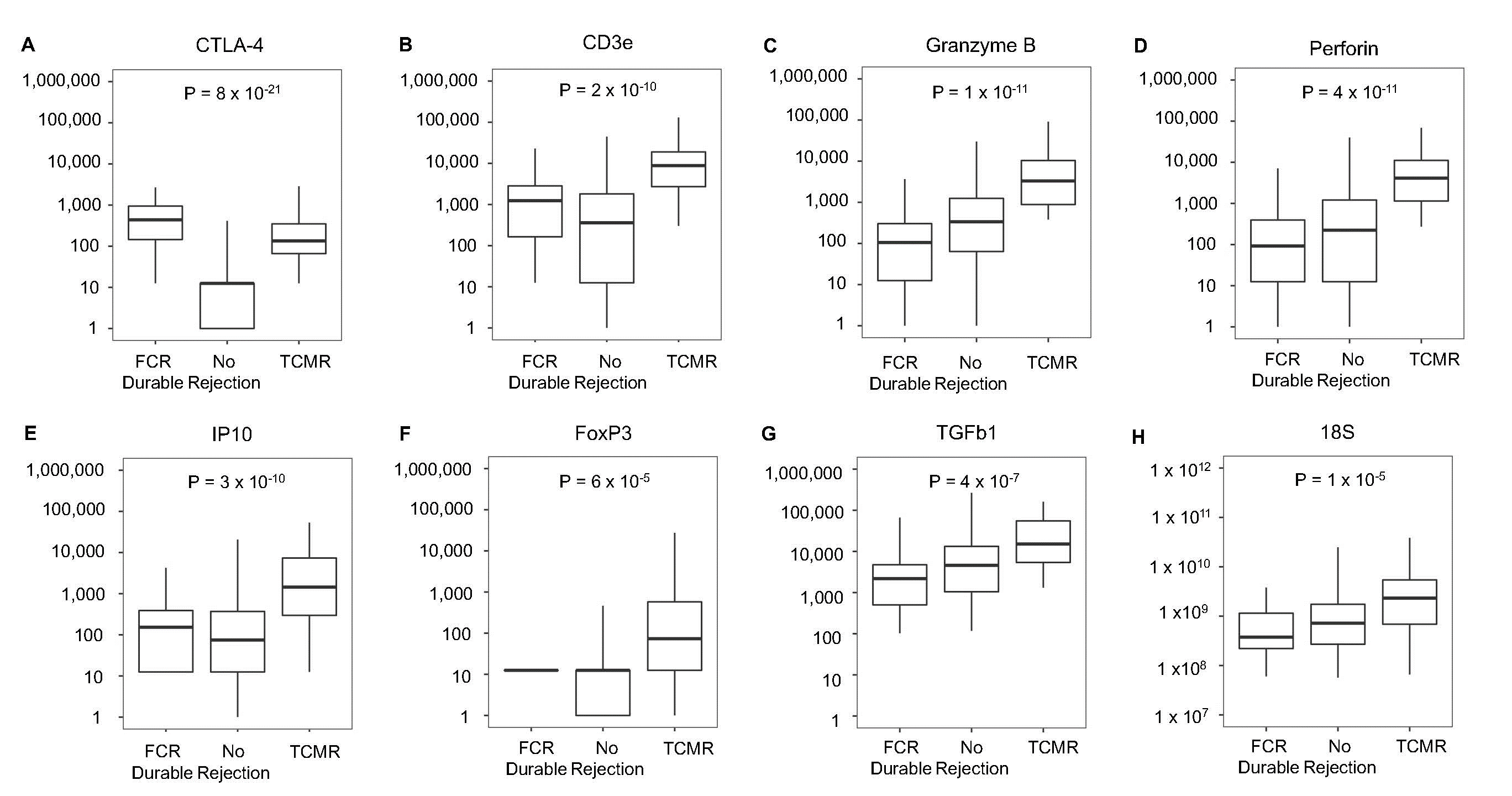Identification of a Unique and Mechanistic Urinary Cell mRNA Signature in Tolerant Kidney Transplant Recipients Conditioned with FCR001 Facilitating Cells
1Weill Cornell Medicine, New York, NY, 2Surgery, Northwestern Medicine, Chicago, IL, 3Medicine, WCMC, New York, NY, 4Univ Louisville / Talaris, Louisville, KY, 5Weill Cornell Med, New York, NY
Meeting: 2022 American Transplant Congress
Abstract number: 173
Keywords: Gene expression, Kidney transplantation, Tolerance
Topic: Basic Science » Basic Science » 12 - Immunosuppression & Tolerance: Preclinical & Translational Studies
Session Information
Session Name: Immunosuppression and Tolerance: Preclinical and Translational Studies
Session Type: Rapid Fire Oral Abstract
Date: Sunday, June 5, 2022
Session Time: 5:30pm-7:00pm
 Presentation Time: 6:30pm-6:40pm
Presentation Time: 6:30pm-6:40pm
Location: Hynes Ballroom A
*Purpose: Urinary cell mRNA profiling is a powerful tool to interrogate kidney allograft status and can diagnose and anticipate acute rejection in kidney allograft recipients. In this study, we seek to identify a urinary cell mRNA signature in tolerant KTx recipients conditioned with FCR001 facilitating cells and correlate it with donor chimerism.
*Methods: We measured a hypothesis-based custom panel of urinary cell mRNAs in 28 biopsy-matched urine specimens from 14 FCR001-tolerant pts with durable chimerism, normal biopsy features and off immunosuppression (FCR Durable Cohort) and compared the urinary mRNA profile to two standard-of-care cohorts from the Clinical Trials in Organ Transplantation -04 (CTOT-04) study: 43 biopsy-matched urine specimens from 34 KTx recipients with biopsies with acute cellular rejection (TCMR Cohort) and 161 biopsy-matched urine specimens from 124 KTx recipients with biopsies without acute or chronic rejection features (No Rejection Cohort).
*Results: The FCR Durable Cohort had higher urinary cell mRNA copies of CTLA-4 than the TCMR Cohort (median copy number: 439 CTLA-4 per microgram of RNA vs. 135 per microgram of RNA, P=0.005) as well as higher copy number than in the No Rejection Cohort (439 vs. 13, P = 6×10^-15). A ratio of CTLA-4 mRNA to granzyme B mRNA was higher in the FCR Durable Cohort than the TCMR Cohort (5.62 vs. 0.03, P=6 x10^-16) and also higher than in the No Rejection Cohort (5.62 vs. 0.04, P=7×10^-15). The FCR Durable Cohort had lower urinary cell mRNA copies of CD3e, granzyme B, perforin, IP-10, FoxP3, TGF-b1 and 18S rRNA than the TCMR Cohort (P<0.05, Wilcoxon rank sum test). The FCR Durable Cohort had similar levels of urinary cell mRNA for CD3e, perforin, IP-10 and FoxP3 to the No Rejection Cohort (P>0.05) and lower levels of urinary cell mRNA for granzyme B and TGF-b1 than the No Rejection Cohort (P<0.05). The CTLA-4 mRNA to granzyme B mRNA ratio was numerically higher in the FCR Durable Cohort (28 urine specimens from 14 pts) than in the FCR Transient Group (11 urine specimens from 3 pts) (5.62 vs. 1.99, P=0.21). The Figure shows box and whisker plots for the urinary cell mRNA genes by cohort with Kruskal-Wallis p-values
*Conclusions: We have identified a unique and mechanistic urinary mRNA tolerance signature, defined by the ratio of CTLA-4 to granzyme B mRNA, in tolerant kidney allograft recipients which is consistent with immune quiescence.”
To cite this abstract in AMA style:
Lee J, Leventhal JR, Li C, Ding R, Ildstad S, Suthanthiran M. Identification of a Unique and Mechanistic Urinary Cell mRNA Signature in Tolerant Kidney Transplant Recipients Conditioned with FCR001 Facilitating Cells [abstract]. Am J Transplant. 2022; 22 (suppl 3). https://atcmeetingabstracts.com/abstract/identification-of-a-unique-and-mechanistic-urinary-cell-mrna-signature-in-tolerant-kidney-transplant-recipients-conditioned-with-fcr001-facilitating-cells/. Accessed February 23, 2026.« Back to 2022 American Transplant Congress

